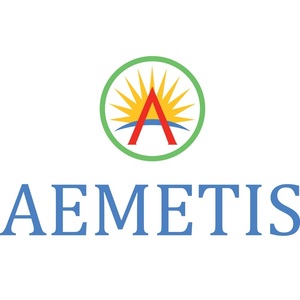Aemetis: India biodiesel plant supplies fuel to APSRTC for busses

March 17, 2021
BY Aemetis Inc.
Aemetis Inc. announced March 16 that its Universal Biofuels subsidiary located in the Andhra Pradesh state of India was selected by the Andhra Pradesh State Road Transport Corp. to supply approximately 800,000 gallons per month of biodiesel to fuel public transport buses in the region. The arrangement is expected to be ongoing to meet the needs of APSRTC. The State of Andhra Pradesh has a population of 84 million people, including approximately 28,000 villages.
“After an initial ramp up period, revenues from the APSRTC supply agreement are expected to be about 20 percent of our plant capacity generating $36 million per year including glycerin byproducts, for a total of $180 million under the recently announced Aemetis Five Year Plan,” stated Eric McAfee, chairman and CEO of Aemetis. “We built our 50 million gallon per year capacity biodiesel plant in the port city of Kakinada in the State of Andhra Pradesh on the East Coast of India to convert waste from the edible oil industry into high quality biodiesel. The selection of Universal Biofuels to supply APSRTC is the result of many years of reliably producing a high quality product and building our reputation as a proven large scale producer.”
Advertisement
Currently, APSRTC operates 11,522 buses with 423 bus stations, 128 depots and 692 bus shelters. The Corporation’s buses connect villages to all major towns and cities in the State of Andhra Pradesh, as well as cities in the neighboring States of Tamilnadu, Karnataka, Odisha, and Telangana.
In 1999, APSRTC entered the Guinness Book of World Records for owning the largest fleet of buses in the world. The supply agreement was arranged after the Aemetis plant was evaluated and approved for quality and production capacity by the APSRTC Head of Engineering.
Advertisement
The Aemetis Corporate Presentation is posted on the Investors section of the Aemetis website at http://www.aemetis.com/investors/presentation/.
Related Stories
Calumet Inc. on Aug. 8 confirmed its Montana Renewables biorefinery is currently running at full capacity. An initial phase of the company’s MaxSAF initiative remains on track to boost SAF capacity to up to 150 MMgy by mid-2026.
Marathon Petroleum Corp. on Aug. 5 released second quarter financial results, reporting improved EBITDA for its renewable diesel segment. The company primarily attributed the improvement to increased utilization and higher margins.
Chevron Corp. on Aug. 1 confirmed the company started production at the Geismar renewable diesel plant in Louisiana during the second quarter after completing work to expand plant capacity from 7,000 to 22,000 barrels per day.
The public comment period on the U.S. EPA’s proposed rule to set 2026 and 2027 RFS RVOs and revise RFS regulations closed Aug. 8. Biofuel groups have largely expressed support for the proposal but also outlined several ways to improve the rulemaking.
In celebration of World Biodiesel Day, MOL Group on Aug. 8 announced SAF was successfully produced for the first time at INA’s Rijeka Refinery during a pilot project to process biocomponent. Renewable diesel was also produced.
Upcoming Events










